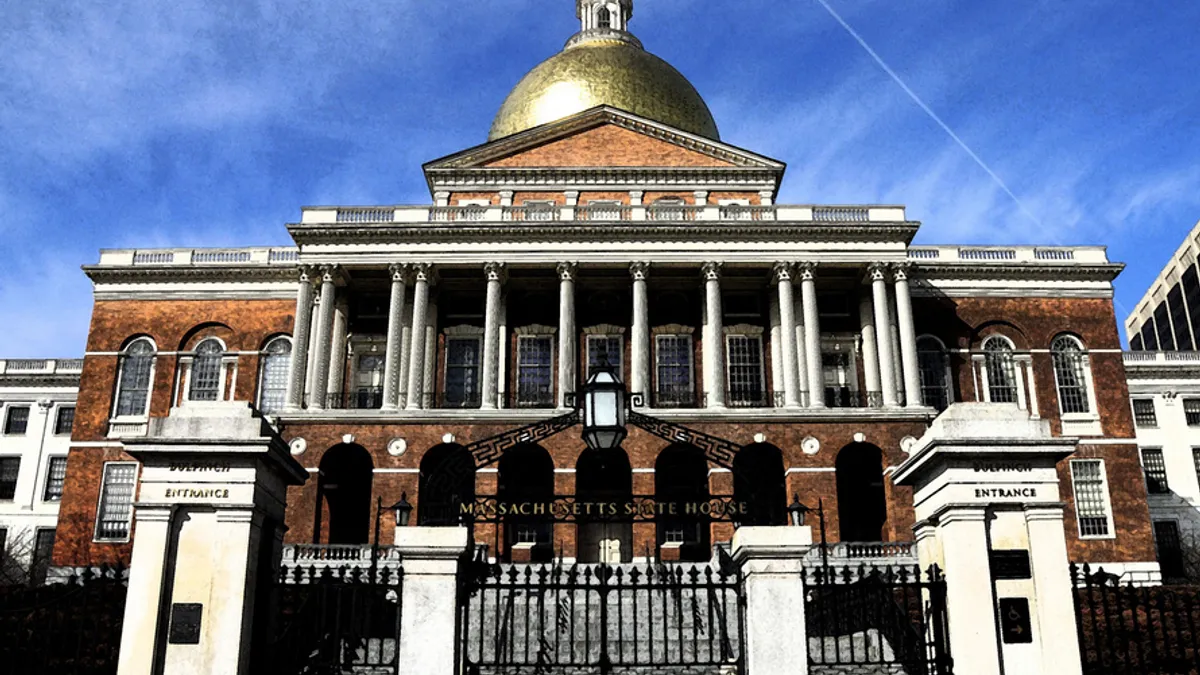The Massachusetts Legislature on Sunday approved climate legislation that requires all new vehicle sales in the state be zero emission beginning in 2035, reduces the state’s dependence on natural gas and calls for a study on medium- and long-duration energy storage systems. The bill was passed by the state Senate and House of Representatives on Sunday, the last day the legislature was authorized to meet in the formal session, meaning lawmakers cannot override a potential veto by Republican Gov. Charlie Baker.
Baker declined to sign an earlier version of the legislation and sent it back to lawmakers with several amendments.
Lawmakers “agreed to a common disposition of several amendments proposed by Gov. Baker to a groundbreaking new climate bill for Massachusetts,” Sen. Mike Barrett, D, said in a statement. “Important ideas of his are included, the most notable of which is abolition of the so-called ‘price cap’ on what developers of offshore wind farms can charge for the electric power they produce.”
For electric vehicles, the legislation includes a $3,500 rebate on purchases and leases of zero-emission passenger cars and light duty trucks that cost $55,000 or less. Buyers trading in an internal combustion vehicle can get an additional $1,000, and low-income buyers can receive an additional $1,500 rebate. The legislation also extends the rebates to used vehicles.
The bill establishes a Charging Infrastructure Deployment Fund and forms a new coordinating council to develop a plan for the equitable deployment of EV chargers.
The legislation would allow up to 10 municipalities to require all-electric new construction, though it requires participating communities to meet certain affordable housing targets and certain facilities, including health care, are exempted.
The bill declares that new industrial-scale biomass plants cannot be considered renewable as part of the state’s renewable portfolio standard program, and requires new grid modernization projects to minimize price impacts on ratepayers. It also directs the Massachusetts Department of Energy Resources to deliver to the legislature by 2023 a study of “mid-duration” and “long-duration” energy storage systems, including pumped storage.
“This bill is a big deal,” Ben Hellerstein, state director for Environment Massachusetts, said in a Sunday statement. “We must transition Massachusetts to 100% clean and renewable sources of energy, and this bill will take us a few big steps in the right direction.
“Starting tomorrow, all eyes will be on Gov. Baker.”
Baker, in March of 2021, signed climate change legislation that set the state on a path to achieve net zero emissions in 2050, but only after vetoing a similar bill in January.














